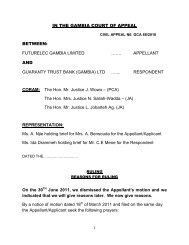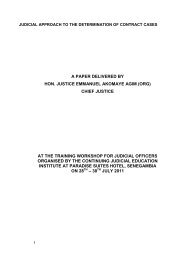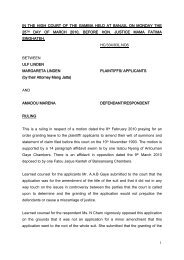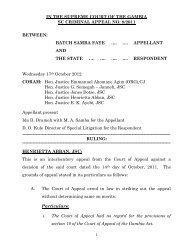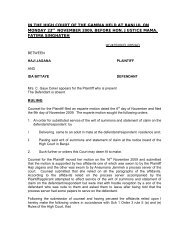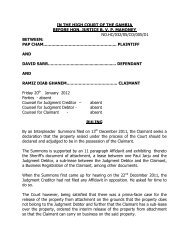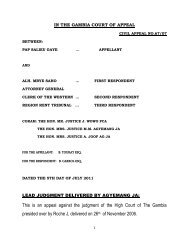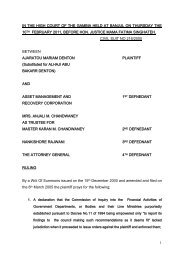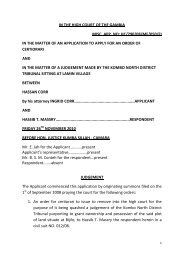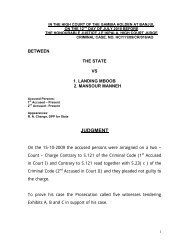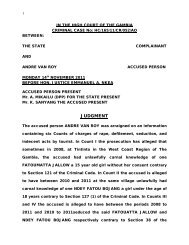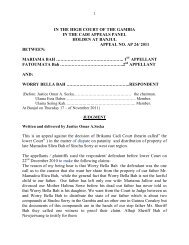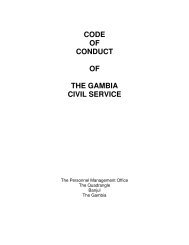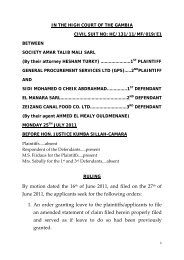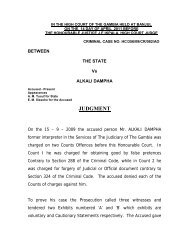IN THE GAMBIA COURT OF APPEAL
IN THE GAMBIA COURT OF APPEAL
IN THE GAMBIA COURT OF APPEAL
You also want an ePaper? Increase the reach of your titles
YUMPU automatically turns print PDFs into web optimized ePapers that Google loves.
ISSUE THREE<br />
Whether the Appellants case at the Lower Court could have succeeded without<br />
the two written agreements which had been rejected.<br />
By the tenor of their argument in this appeal the Appellants are alleging that the<br />
Learned Trial Judge failed to evaluate the evidence placed before her at the trial<br />
court. It is by reason of this fact that the Appellants are inviting this court to go<br />
down stairs to the trial court, re-evaluate the evidence tendered there, set aside<br />
the findings not supported by evidence, substituting same with findings which<br />
ought properly to have been made having regards to the evidence.<br />
It is trite learning, that an appellate court usually will not interfere with the<br />
findings of fact made by a trial court after a proper evaluate of the evidence,<br />
unless there was no proper evaluation of the evidence led by both sides on the<br />
point. It is the duty of the trial court to review and evaluate all relevant and<br />
material evidence, before it, before making any findings of facts. Where the trial<br />
court fails to make proper use of its opportunities to appraise the evidence given<br />
before it, this court can dismiss the findings of facts of the said Trial Court. In<br />
the case of Armanti Gambia Company Ltd V DHL International (Gambia)<br />
Ltd (2002-2008) 1 GR 194, the Supreme Court of the Gambia put the<br />
position thus. “As a general rule, an appellate court does not disturb findings of<br />
fact made by a trial court unless it can be demonstrated that the said findings of<br />
fact are perverse, or are not supported by the evidence on record, or absurd in<br />
that no reasonable tribunal applying itself to the same facts, could have reached<br />
the same findings.” See Singam Investment Company Gambia Ltd V<br />
Nasser H Farage (2002-2008) GR 68 Christiana Williams V Melville<br />
Williams (CA 37/2007). Similarly, in the case of Fashonu V Adekoya<br />
(1974) 1 ALL NLR (pt.1) 35 at 41, The Supreme Court of Nigeria<br />
postulated this principle of law in the following language:<br />
25



